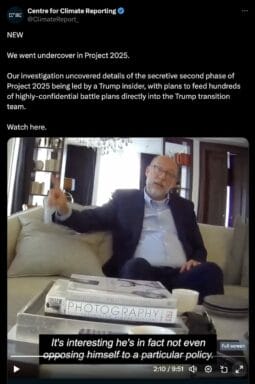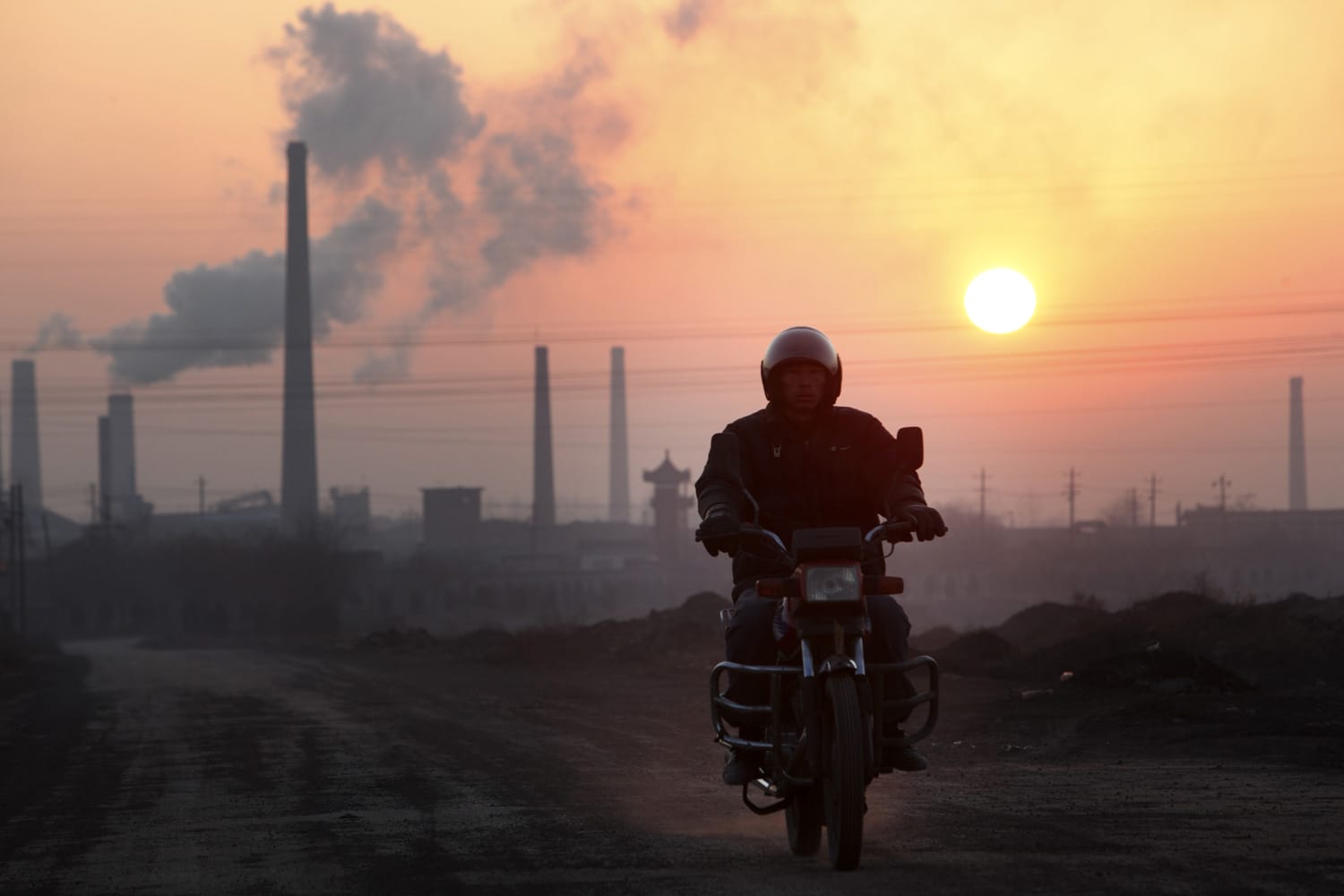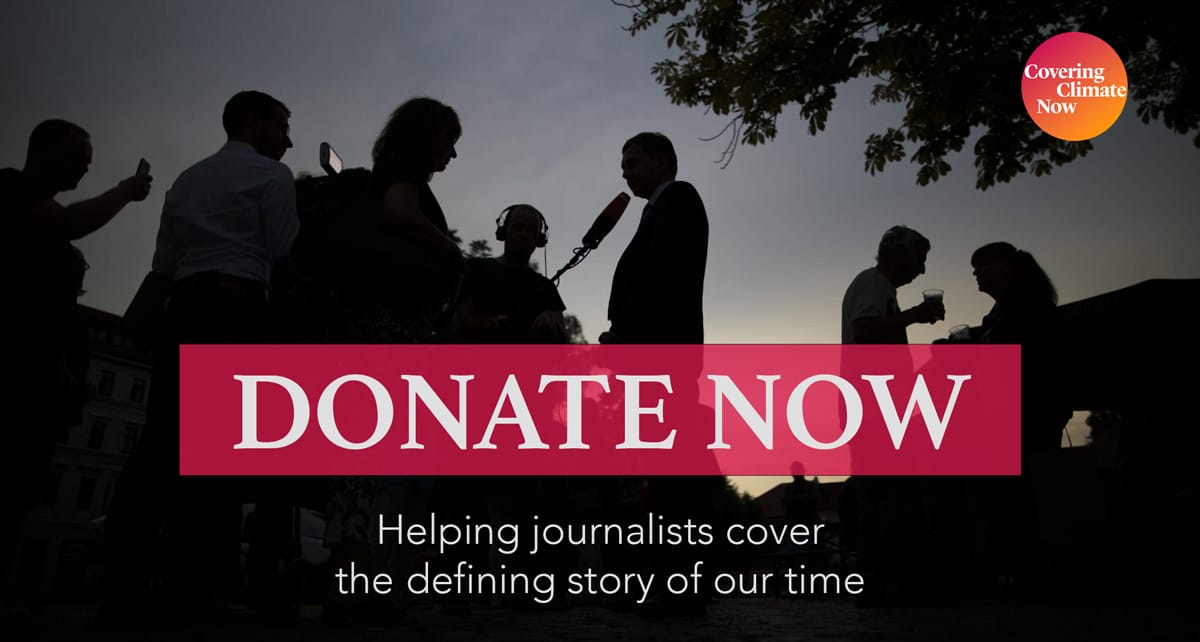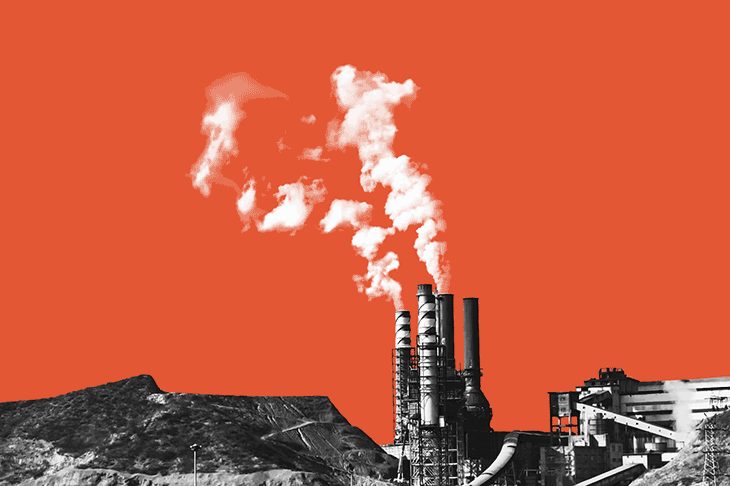Support CCNow’s mission of helping journalists
improve and expand their climate coverage. Donate Now.
Wildfires turning skies above the Athenian Parthenon orange. Insurance companies charging record premiums in Britain and Texas after relentless extreme weather. The Arctic sweltering under record 32 degrees Celsius (89 degrees Fahrenheit) temperatures. The climate emergency is here. And global temperatures will keep rising, scientists warn, until humans stop burning fossil fuels.
Against that backdrop, journalists need to understand two recent climate developments in Asia. One, the International Energy Agency has projected that global coal consumption will stay flat through 2025, with declines in Europe and the US offset by increases in India and China. Two, China announced it will cap its greenhouse emissions by 2030.
At first glance, these developments might look like positive climate news. The reality is not so simple.
Coal is the most carbon-intensive fossil fuel, so for global coal consumption “to remain broadly flat through 2025,” in the IEA’s words, is in one respect a good thing: It means consumption is no longer increasing. The problem is that this projected flattening is unfolding while global consumption remains at an all-time high.
Scientists emphasize that to stop global temperature rise, the burning of coal, indeed of all fossil fuels, must cease almost entirely, and quickly. (The UN Intergovernmental Panel on Climate Change says carbon capture technology could at best abate 2% of emissions by 2030.) And this fossil fuel phase-out must take place very rapidly: Emissions must fall by roughly 50% by 2030 to limit temperature rise to 1.5 degrees C.
So, flat coal consumption is a step forward, but there remains a long way to go and little time to get there.
Likewise with China’s emissions cap. To date, China has limited only the “carbon intensity” of its economy: the amount of carbon emitted per unit of economic activity. This policy has helped drive China’s extraordinary build-out of wind, solar, and other climate-friendly technologies. But overall emissions have kept increasing because China’s economy grew faster than its clean energy sector. Now, China is promising to reduce emissions no matter what.
Again, this is a good thing. But the implacable math of humanity’s climate dilemma means that a hard cap on China’s emissions is not the game-changer it might have been 10 years ago.
What’s more, China and India’s example mirrors what may be happening in the US. An analysis by the nonprofit Center for Biological Diversity found that new oil and gas projects approved or pending under the Biden administration could cancel out the emissions reductions delivered by Biden’s signature climate achievement, the Inflation Reduction Act.
Journalists need to remember, and convey to our audiences, that clean energy growth is necessary but insufficient. Science is clear that phasing out fossil fuels is what’s imperative.
From Us
The Climate Station en español. The Climate Station es un programa de entrenamiento gratuito de Covering Climate Now que capacita a las salas de redacción de las estaciones de televisión locales de Estados Unidos, incluidos periodistas, productores y meteorólogos, para cubrir de manera más eficaz las noticias sobre el clima. Para consultas, envía un correo electrónico a Elena González a elena[at]coveringclimatenow[dot]org.
Climate on the Ballot Summit. From September 17–19, join CCNow and top political and climate journalists for a virtual summit on integrating climate into your elections coverage. RSVP.
Watch recent CCNow webinars:
- “Covering the Climate Story for a Texas Audience” with Brandi Addison of USA Today Network, Professor Jay Banner of the University of Texas, and Priya Zachariah of the Harris County Flood Control District.
- “Digging Into VP Kamala Harris’s Climate Record” with Zoya Teirstein of Grist, Scott Waldman of Politico’s E&E News, and Justin Worland of TIME magazine.
- Check out CCNow’s events archive for recordings about war and climate change, making the climate connection during hurricane season, and more.
Via Social

The Centre for Climate Reporting has gone undercover to gather details about the “secretive second phase of Project 2025,” the Heritage Foundation’s sweeping plan for a next Republican presidential administration.
Russell Vought, one of the architects of the plan, speaks on camera about the coziness between the Project 2025 team and former president Donald Trump, who has tried to publicly distance himself from the highly unpopular policy platform. This nine-minute video includes clips of Vought and other Project 2025 staff.
Noteworthy Stories
“Eradicate climate change references.” In a blockbuster collaboration, ProPublica and Documented gained access to Project 2025 training videos instructing potential future political appointees to a Republican administration how to overhaul the federal government. “If the American people elect a conservative president, his administration will have to eradicate climate change references from absolutely everywhere,” says conservative activist and former Trump appointee Bethany Kozma in one video. By Andy Kroll for ProPublica, and Nick Surgey for Documented…
Tipping points. Understanding tipping points is critical to understanding the progression of climate change and the urgency of rapid, immediate action. This interactive feature from The New York Times looks at seven key tipping points that, if crossed, would trigger devastating and widespread changes to Earth’s ecosystems and could be impossible to reverse on human timescales. Raymond Zhong and Mira Rojanasakul for The New York Times…
Summer of Heat protests. Activists have blockaded Citigroup’s Manhattan headquarters 15 times this summer as part of the Summer of Heat campaign, which is calling out financial institutions for their role in funding the climate crisis. The multiracial, multi-generational, and cross-class coalition of protestors is targeting Citigroup, the largest funder of new fossil fuel projects since 2016, when the Paris Agreement went into effect. Wen Stephenson talks about Summer of Heat with Alice Hu, a senior climate campaigner with New York Communities for Change, for The Nation…
Heat in Texas prisons. The Texas Department of Criminal Justice is being sued for not protecting inmates from heat so brutal and lethal that the suit alleges it amounts to cruel and unusual punishment, which is banned under the US Constitution. The lawsuit aims to mandate air conditioning in all Texas prisons. By Ed Pilkington for the Guardian…
“Lobster housing crisis.” Warming waters in the Gulf of Maine are leading to a boom in the local lobster population, which, in turn, is leading to a housing shortage. One of their primary food sources is also arriving earlier in the year, so many lobsters aren’t getting enough to eat. By Kate Cough for The Maine Monitor…
Coping with climate dread. “[Scientists] are a vulnerable population, a group that is exposed in very serious ways to the reality of climate change,” said Robin Cooper, a steering committee member for Climate Psychiatry Alliance. By Meghie Rodrigues for Nature…
- How do climate-focused journalists cope? Yale Climate Connections published the transcript of a recent roundtable with their editorial team about how they manage climate anxiety. “While you do need a great support system in your personal life,” Pearl Marvell said, “it’s sometimes hard to talk to them about what is happening within your work environment because they’re just not involved in it as much as you are.”
Resources & Events
Weather attribution. Are you a journalist interested in receiving World Weather Attribution’s press releases and research digging into the connection between particular extreme weather events and climate change? Email wwamedia@imperial.ac.uk to be added to the list.
Social science for journalists. SciLine is hosting a crash course, “Social science essentials for local reporters,” on August 19. Register.
Water conference. World Water Week, put on by the Stockholm International Water Institute, will be hosted August 25–29. This year’s theme is “Bridging Borders: Water for a Peaceful and Sustainable Future.” Virtual attendance is free.
“The Language of Climate Politics.” Author Genevieve Guenther will give a book talk at City Lights in San Francisco, Calif., on September 19. The event will be broadcast free. Register.
Clean Energy Wire turns 10! Join CLEW for a two-day conference in Berlin, “Journalism for the age of climate consequences,” from September 19–20.
Jobs, Etc.
Jobs. The Dallas Morning News is hiring an Energy and Natural Resources Reporter (Dallas, Texas). StateImpact Oklahoma is recruiting an Environment and Science Reporter (Norman, Okla.). National Geographic is seeking a senior photo editor (Washington, D.C.). New York’s Amsterdam News is hiring a Data and Investigations Reporter for its Blacklight Investigative Unit (New York, N.Y.). To get on Inside Climate News’s radar, send them a resume and cover letter to jobs@insideclimatenews.org (subject line: QUERY).
Grants. The Pulitzer Center is accepting applications for its Work/Environment Reporting Grant, which funds stories about climate change and its affects on workers and their work.
Pitch advice. National Geographic editor Sarah Gibbens shared what she looks for in a story pitch.
Support Covering Climate Now
We’re working to help journalists worldwide improve and expand their climate coverage. Meet our staff and learn more about CCNow.




